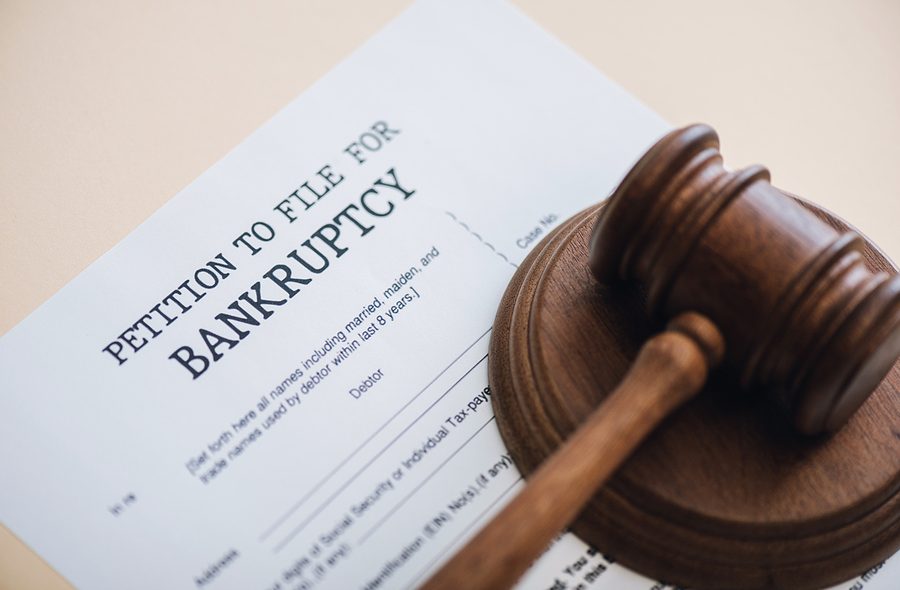Making the choice to file for bankruptcy is not an easy decision to make, but it is the first step towards a financial fresh start. However, choosing which type of bankruptcy to pursue can be a difficult decision to make.
Typically, consumers choose between a Chapter 7 “liquidation” bankruptcy or a Chapter 13 “reorganization” bankruptcy. Both forms of bankruptcy have their positive attributes, as well as their negative ones, and it ultimately depends on the consumer’s financial situation and the goals he or she wants to achieve as to which type of consumer bankruptcy will be best for him or her.
In a Chapter 7 bankruptcy case, the filer will work with the bankruptcy trustee to sell any nonexempt property to repay qualifying creditors. At the end of the case, the filer can eliminate most of his or her unsecured debts. In a Chapter 13 bankruptcy case, the filer also works with the bankruptcy trustee but in a three-to-five-year long repayment plan where payments are made on qualifying debts, with the remainder discharged at the end of the successful repayment plan period.
Time Frame
How much time the filer has available to him or her can also determine which bankruptcy case is filed. Chapter 7 cases are much shorter in duration, typically lasting anywhere from three to four months. Chapter 13 cases take longer, depending on the complexity of the repayment plan and the person’s income. These cases tend to take between three to five years to successfully complete.
Income Qualification
Only filers who meet a certain income threshold will be allowed to proceed with a Chapter 7 bankruptcy. This determination is done through the means test, which looks at the filer’s income. The means test looks at the person’s average monthly income for the six months immediately preceding his or her filing date. This figure is compared against the median income for a similar household in Florida. If the filer’s income is below the state median, he or she qualifies for filing for Chapter 7 bankruptcy. If it is above the median, the filer is then required to complete the remainder of the form, adding in other expenses, to determine if the person’s disposable income is low enough to qualify. If the person still does not qualify after that consideration, he or she will need to proceed with a Chapter 13 bankruptcy case. Chapter 13 bankruptcy does not have a similar income requirement. However, as of April 1, 2019, unsecured debt must be below $419,275 and secured debt must be below $1,257,850.
Property Exemptions
Many filers fear losing all they own when they declare bankruptcy. However, Florida offers fairly generous property exemptions, but what property can be kept also may vary depending on the type of case being filed.
In a Chapter 7 bankruptcy case, the trustee has the power to sell non-exempt property to pay creditors. If the filer has a significant amount of assets that are not exempt, these assets could be fair game for liquidation and payment of unsecured debts. For the most part, in a Chapter 13 bankruptcy, the filer will be able to keep his or her property so long as payments are made via the approved repayment plan.
Therefore, if the person filing is unemployed or has a low income with very few assets, Chapter 7 bankruptcy may be the best choice for him or her. If the person is unemployed or has a low income with a significant amount of equity in his or her assets, and he or she wants to keep that property, Chapter 13 may be the best choice, especially if one of these assets is a home with a mortgage.
When it comes to homes in foreclosure or in danger of being in foreclosure, the type of bankruptcy chosen can be key. While a Chapter 7 bankruptcy case may put a temporarily halt to the foreclosure through the automatic stay, unless the filer is able to continue paying his or her bills while getting current with what is owed on the mortgage, it is unlikely he or she will be able to keep the home. A Chapter 13 repayment plan can also put a stop to the foreclosure while allowing the homeowner to become current on past due mortgage payments
Which is Better?
While Chapter 7 bankruptcy is cheaper and shorter in duration, it does not necessarily mean this form of bankruptcy is better than Chapter 13. It ultimately depends on the filer’s financial situation and his or her ultimate goals. A bankruptcy attorney will be able to help the client make the best decision for him or her.
Please click here and here to read more.
If you have questions on this topic or are in financial crisis and considering filing for bankruptcy, contact an experienced Miami bankruptcy attorney who can advise you of all of your options. As an experienced CPA as well as a proven bankruptcy lawyer, Timothy Kingcade knows how to help clients take full advantage of the bankruptcy laws to protect their assets and get successful results. Since 1996 Kingcade Garcia McMaken has been helping people from all walks of life build a better tomorrow. Our attorneys’ help thousands of people every year take advantage of their rights under bankruptcy protection to restart, rebuild and recover. The day you hire our firm, we will contact your creditors to stop the harassment. You can also find useful consumer information on the Kingcade Garcia McMaken website at www.miamibankruptcy.com.

